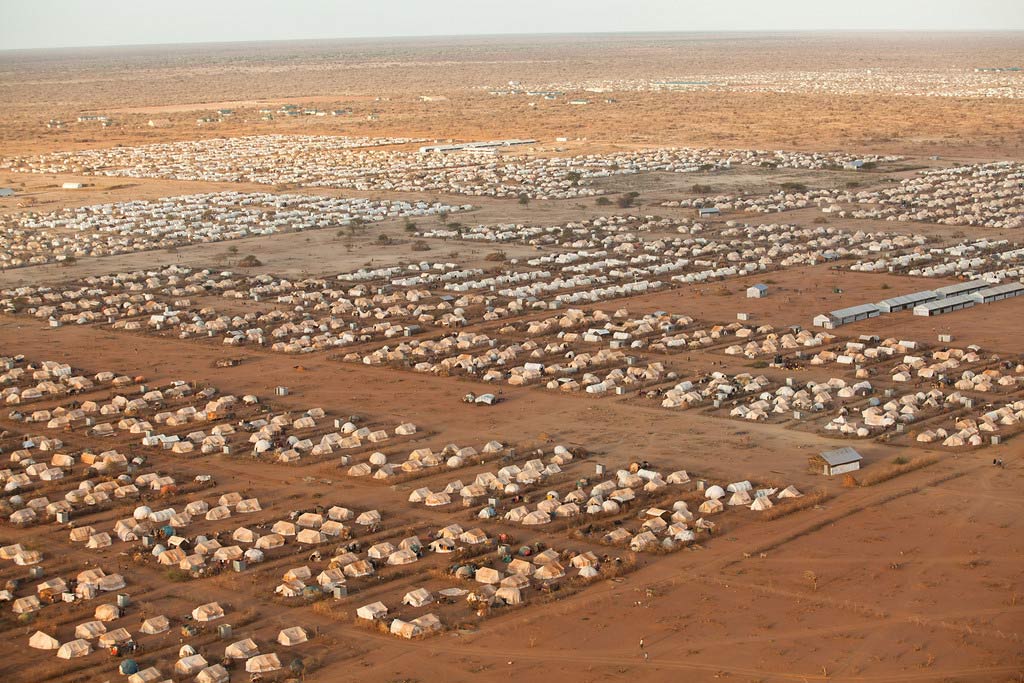An international NGO has urged Kenya to remove the November deadline imposed by the government for the closure of the Dadaab camps even as it faulted the repatriation process as no longer “being voluntary, safe or dignified.”
Kenya, which hosts as many as 600,000 refugees mainly from neighbouring Somalia, said in May it would close down its two biggest refugee camps because of the “very heavy” economic, security and environmental costs.
“The government of the Republic of Kenya, having taken into consideration its national security interests, has decided that hosting of refugees has to come to an end,” the Interior ministry said then.
But in a new report titled Dadaab’s Broken Promise the Norwegian Refugee Council (NRC) says that the decision by the Government of Kenya to close the Dadaab refugee camps in November has led to a situation where the voluntary returns process does not meet international standards, and breaks the agreement that Somalis would be assisted to return home safely and voluntarily.
It says return should be viewed as a process of “rehabilitation, restructuring and rebuilding, not as a project with an end date in mind.”
It adds the Kenyan government should return to the process of organised and planned returns, to “ensure a safe, dignified, sustainable and voluntary return process.”
“We are willing and able to enable voluntary return, but the pressure to push more than 280,000 registered refugees from Dadaab camp has led to chaotic and disorganised returns.
“From what we have seen on the ground, it is no longer voluntary, dignified nor safe,” said Norwegian Refugee Council (NRC) Secretary General Jan Egeland.
“The deadline to close the world’s largest refugee camp must be lifted.”
The agency says the Kenyan government and the UN refugee agency should reinstate “the organised and voluntary process of return” under the Tripartite Agreement adding that the “unrealistic deadline” must be removed before the situation further deteriorates.
TRIPARTITE AGREEMENT
The Tripartite Agreement for the voluntary return of Somali refugees from Kenya was signed by the Kenyan and Somali governments and UNHCR in 2013.
It was based on international law and created a framework in which returns were to be organised.
“The initial returns programme under the 2013 Tripartite Agreement was largely a success, as it saw Somali assisted to reach their return locations safely and with dignity.
“We should return to the terms of this agreement, rather than simply aiming to push back as many refugees as possible,” said Egeland.
In addition to failing to meet international standards for voluntary return, the report claims that refugees returning to Somalia are not sufficiently protected, exposing them to insecurity risks associated with Al-Shabaab militants.
Returnees interviewed claimed that repatriation staff in Dadaab have solicited bribes prior to agreeing to register a person for return.
It also reveals that the pressure to speed up the repatriation process threatens to create a revolving door scenario.
“The number of vulnerable Somalis planned for return far outstrips the resources available to support them in Somalia,” said NRC’s Country Director in Kenya Neil Turner.
“Sustainable return should form a key component of the returns programme. It must prevent families ending up in displacement camps in Somalia or returning as undocumented refugees to Kenya.”
Kenya hosts more than 335,000 Somalia refugees, including over 270,000 in Dadaab refugee camp.


Leave a Reply